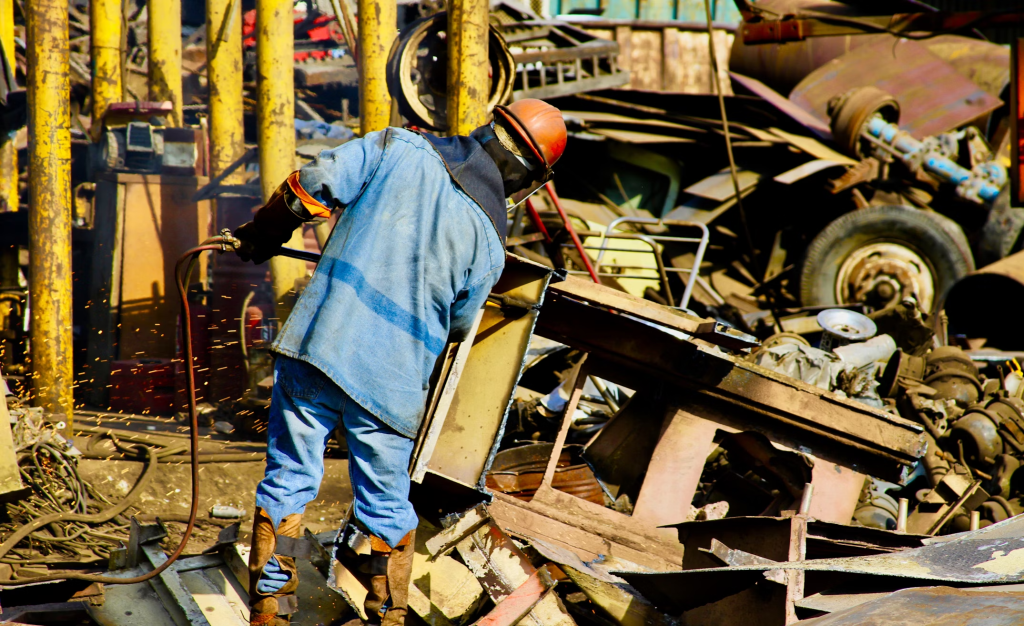If you find yourself with an old, unwanted car taking up space in your driveway or garage, you’re not alone. Many Australians face the dilemma of what to do with their aging vehicles. Whether your car has become unreliable, is no longer roadworthy, or you simply want to upgrade to a newer model, getting rid of an old car can be a bit tricky.

Fortunately, there are several viable options available to Australians to dispose of or recycle their old vehicles. In this guide, we will explore the best ways to get rid of an old car in Australia while ensuring you get the most value for it and do so in an environmentally responsible manner.
Click Helpful Hints For More Details
The Best Way To Get Rid Of An Old Car In Australia
Selling Your Old Car
Selling your old car is one of the most common and straightforward ways to get rid of it. If your car is still in relatively good condition and functional, this may be the best option for you. You can either sell it privately or trade it in at a dealership. Let’s break down both options:
Private Sale
Selling your car privately often yields the highest return. This involves advertising the car through online platforms such as Gumtree, Carsales, or Facebook Marketplace. Here are some steps to help you through the process:
- Clean and Detail the Car: Before listing it for sale, wash your car thoroughly and clean the interior. A well-presented vehicle is more likely to attract buyers.
- Set a Fair Price: Check online listings for similar models to determine a fair price for your car. Don’t forget to account for its age, condition, mileage, and any issues it may have.
- Prepare Documentation: Have all the necessary documents, such as the registration, service history, and any repair records, ready to show potential buyers. This will give them confidence in the purchase.
- Negotiate: Be prepared to negotiate the price with buyers. Be flexible, but know the minimum amount you are willing to accept.
- Transfer Ownership: Once you’ve found a buyer, ensure the transfer of ownership is handled properly by completing the necessary paperwork with your local state or territory transport authority.
Trade-In At A Dealership
If you’re buying a new or used car from a dealership, you may consider trading in your old vehicle. This can be a convenient option because the dealer will handle the sale process for you. The trade-in value may be lower than what you would get through a private sale, but it can save you time and effort.
Car Removal Services
If your car is no longer functional, has significant mechanical issues, or is unroadworthy, you may want to consider using a car removal service. These services often offer free collection and removal of vehicles, and some even pay for scrap cars. This can be a hassle-free way to get rid of your old car.
How Car Removal Works
Car removal companies typically accept cars that are damaged, wrecked, or no longer running. They will tow the car away for free and either scrap or recycle it. Some companies even offer cash for cars, depending on the make, model, age, and condition of the vehicle. Here’s how the process usually works:
- Contact a Car Removal Company: Start by researching car removal services in your area. Many of them operate nationwide and will offer free removal regardless of your location. Some of the most well-known companies in Australia include Free Car Removal and Car Wreckers.
- Provide Details About the Car: When contacting a car removal company, be ready to provide details about your car, including its make, model, year, and condition. The more information you give, the better the quote you’ll receive.
- Receive a Quote: Based on the details you provide, the car removal service will give you a quote. If you accept the offer, they will arrange a time to come to your location and tow the car away.
- Free Towing: Most car removal companies offer free towing services, so you won’t have to worry about paying for transportation.
- Get Paid for Your Car: Depending on the company and the condition of the car, you may receive cash for your car. Some companies pay more for cars that are still in good condition, while others offer a standard rate for scrap vehicles.
Recycling Your Old Car
Recycling is a highly responsible and environmentally friendly way to dispose of an old vehicle. In Australia, many cars end up in scrap yards, where they are dismantled, with parts either recycled or sold for reuse. If you want to ensure your car is recycled in an eco-friendly way, it’s important to choose a reputable recycling centre or car wrecker.
Why Recycling Is Important
Cars are full of materials such as metals, plastics, and chemicals that can be harmful to the environment if not disposed of properly. Recycling old vehicles helps conserve natural resources, reduce pollution, and prevent hazardous materials from entering landfills. Reputable recycling companies dismantle the car, recycle the usable parts, and dispose of harmful fluids (like oil, coolant, and brake fluid) in a safe manner.
How To Recycle Your Old Car
- Find a Registered Recycling Centre: Look for an authorised treatment facility (ATF) that complies with Australian recycling standards. These centres are licensed to safely dismantle and recycle vehicles.
- Remove Personal Belongings: Before dropping off your car for recycling, ensure all personal belongings have been removed. Don’t forget about the spare tyres, registration papers, or any other items that may be in the car.
- Drain Fluids: Some recycling centres may require you to drain the fluids (like oil and fuel) before dropping off the car. However, many companies will handle this for you as part of their service.
Donation To Charity
If your car is still in decent condition but you’re not looking to sell it, donating it to charity can be a great way to get rid of your old vehicle while helping others in need. Many Australian charities accept car donations, which are then sold or auctioned to raise funds for their causes.
How To Donate Your Car
- Research Charities: Find a reputable charity that accepts vehicle donations. Some of the most well-known charities in Australia that accept car donations include The Salvation Army, Red Cross, and Kidney Health Australia.
- Check Eligibility: Some charities will only accept cars that are roadworthy, while others may accept vehicles that are in poor condition.
- Arrange Collection: Many charities offer free car removal services, so you won’t have to worry about transportation. They will come to your location, pick up the car, and take care of the paperwork.
- Get a Tax Deduction: Donating your car may entitle you to a tax deduction, which can be a great incentive. Check with your charity of choice to see if they offer this benefit.
Scrapping Your Car Yourself
If you have the time, tools, and expertise, you may consider scrapping the car yourself. This involves dismantling the vehicle and selling off the individual parts for scrap metal or resale. While this method requires more effort, it can be a rewarding way to get rid of your car and make some money from its parts.
How To Scrap Your Car
- Assess the Condition: If your car is in poor condition and you’re planning to scrap it for parts, make sure it’s safe to dismantle. If you don’t have the required tools, it may be worth seeking professional help.
- Sell the Parts: You can sell individual parts like the engine, transmission, tyres, and battery to wreckers or online buyers. Some parts may be worth more than others, depending on their condition and demand.
- Sell the Scrap Metal: Once you’ve removed the parts, you can take the remaining scrap metal to a local scrap yard, where it will be weighed and sold for recycling.
Consider The Environmental Impact
When getting rid of your old car, it’s important to consider the environmental impact of your actions. In Australia, car recycling is heavily regulated to ensure that harmful materials are disposed of properly and that reusable parts are repurposed. Opting for a recycling service or a car removal company that prioritises eco-friendly practices ensures that your old car doesn’t harm the environment.
Conclusion
Getting rid of an old car in Australia doesn’t have to be a stressful process. Whether you choose to sell it privately, trade it in, donate it to charity, or have it recycled, there are plenty of options available. Each option has its pros and cons, so it’s essential to weigh the benefits based on the condition of your car, the amount of time and effort you’re willing to invest, and your environmental values.
Whatever option you choose, make sure to follow the correct procedures to dispose of your vehicle legally and responsibly.By choosing the right method for your situation, you can ensure that your old car is either reused, recycled, or disposed of in a way that benefits you, the environment, and potentially even a charitable cause.
Frequently Ask Question
What Should I Do With My Car’s Number Plates?
In Australia, once you sell or dispose of your car, you need to either return or transfer the number plates to the relevant authorities, depending on the state or territory. If you are deregistering the vehicle, check with your local registration office whether you need to remove the plates or transfer them to another vehicle.
What Paperwork Do I Need To Sell My Old Car?
To sell your old car in Australia, you will typically need the car’s registration papers, proof of ownership, and a certificate of roadworthiness (if applicable). If you’re selling to a wrecker or removal company, ensure you have the appropriate documents to transfer ownership or deregister the vehicle.
How Can I Ensure My Old Car Is Disposed Of Environmentally?
When disposing of your old car, choose a company that follows environmentally responsible recycling practices. Car removal and wrecking services typically recycle the vehicle by stripping it for parts and disposing of hazardous materials properly. This reduces the environmental impact and ensures that the vehicle is recycled in accordance with local laws.
